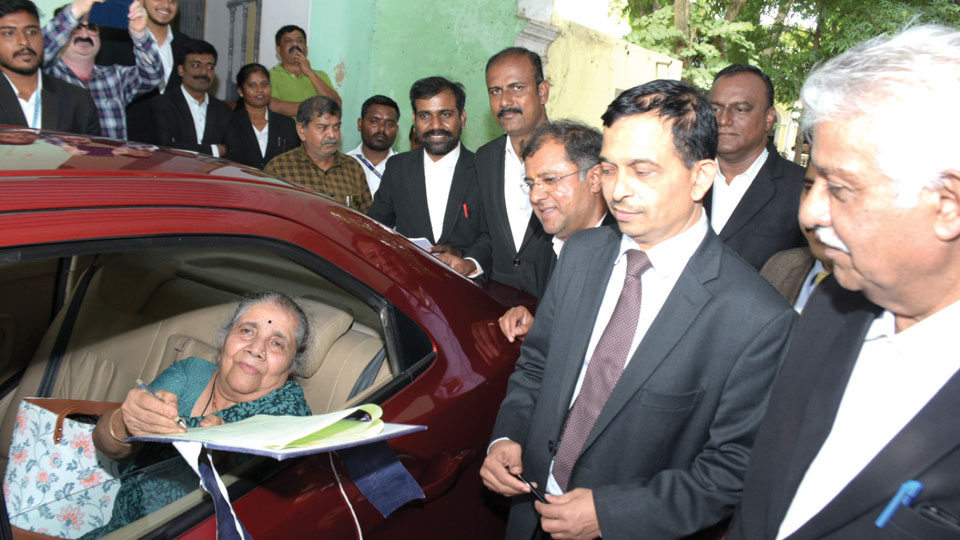



A Special Lok Adalat is set to take place in the Supreme Court from July 29 to August 3, 2024. Chief Justice of India, D Y Chandrachud, has urged citizens to participate in this event to resolve their disputes amicably and speedily. The Lok Adalat is being organized as part of the 75th anniversary celebrations of the establishment of the Supreme Court. It is a voluntary and consensual mode of resolving cases and represents an informal technology-based solution. The aim of the Lok Adalat is to reduce the backlog of cases and enhance alternative dispute resolution. Various types of cases, including those related to matrimonial disputes, property disputes, motor accident claims, land acquisition, compensation, service, and labor, will be taken up for speedy disposal during the Lok Adalat [8618713c].
The Supreme Court has emphasized the importance of establishing 'Gram Nyayalayas' to provide affordable and speedy justice to citizens and reduce the pendency of cases in trial courts. The court has directed the chief secretaries of states and registrar generals of high courts to file affidavits within six weeks regarding the establishment and functioning of Gram Nyayalayas. The plea for the establishment of Gram Nyayalayas was filed in 2019 by the NGO National Federation of Societies for Fast Justice and others, seeking the establishment of Gram Nyayalayas under the supervision of the Supreme Court. The court observed that the establishment of Gram Nyayalayas would provide affordable and speedy justice and help de-clog the huge pendency of matters in trial courts. The court also emphasized that the right to justice includes the right to affordable justice. The matter has been posted for further hearing on September 11 [b0696dca].
However, the dream of affordable and accessible justice in rural areas is still incomplete. According to a report, only 481 out of the needed 6,000 Gram Nyayalayas have been built, with only 309 currently operational. The Supreme Court has stated that the establishment of Gram Nyayalayas is crucial for providing cheap, accessible, and speedy justice to people near their homes. The court has directed the Chief Secretaries of all states and the Registrar General of the High Court to provide information on the status of Gram Nyayalayas, available resources, and staff. Challenges such as lack of infrastructure, judges, and staff remain obstacles in the establishment of Gram Nyayalayas [f10e6972].
In a related development, a mega Lok Adalat was held in Mysuru, India, where 55 cases were disposed of, involving a total loan repayment of Rs. 22.84 crore. The Principal District and Sessions Court Judge, Ravindra Hegde, demonstrated compassion and justice by meeting aged women litigants to obtain their signature on a settlement order in a commercial dispute case. In one case, a developer had borrowed Rs. 17 crore from 16 individuals before his death, and the lenders sought repayment from the deceased borrower's mother. The case was settled through a compromise with parties agreeing to end the dispute. Judge Hegde also climbed down the stairs to obtain the signatures of two elderly women litigants who faced challenges in reaching the courtroom due to their advanced age. The Mega Lok Adalat received a good response, with a total of 55 cases being disposed of and loan repayments amounting to Rs. 22.84 crore settled. Judge Hegde thanked the advocates, Mysore Bar Association members, and others for their cooperation. District Legal Services Authority Member-Secretary B.G. Dinesh and First Additional District and Sessions Judge D. Puttaswamy were present at the event [bdae0061].